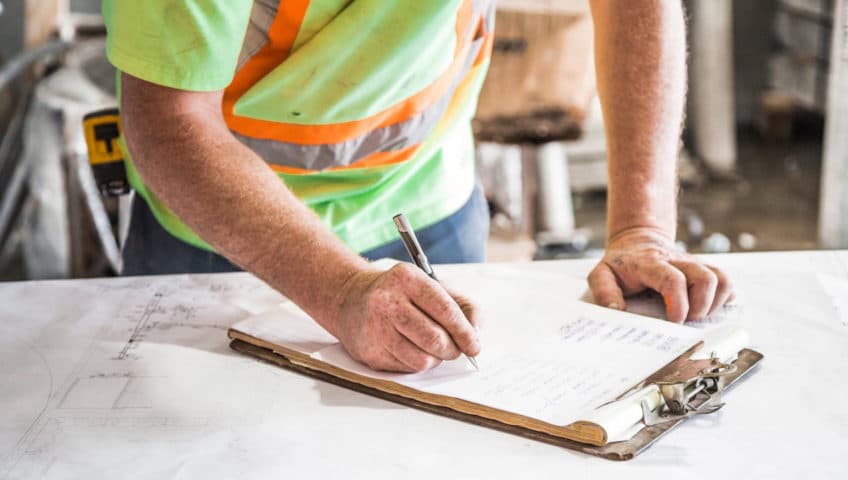With the aim of ensuring the well-being and protection of workers, the Mexican government has established stringent regulations and standards (OH &S) that companies must adhere to. One of the key components in achieving compliance with these regulations is inspections.
Inspections are necessary in monitoring and evaluating workplace conditions, practices, and procedures to ensure compliance with occupational health and safety requirements. They provide an opportunity for regulatory authorities, companies, and third-party inspectors to identify potential hazards, assess safety measures, and make necessary improvements.
Types of Occupational Health & Safety Inspections
In Mexico, there are various types of inspections conducted to ensure compliance with occupational health and safety regulations. These inspections are carried out by regulatory authorities, companies themselves, and third-party entities, depending on the specific circumstances.
Routine Inspections by Regulatory Authorities
Regulatory authorities, such as the Ministry of Labor and Social Welfare (STPS), are responsible for conducting routine inspections in workplaces across Mexico. These inspections are designed to assess compliance with occupational health and safety laws and regulations. Inspectors examine various aspects of the workplace, including safety protocols, equipment maintenance, employee training, and documentation.
Self-Inspections Conducted by Companies
Companies operating in Mexico are encouraged to conduct self-inspections regularly. Self-inspections involve internal assessments of workplace conditions, practices, and procedures to ensure compliance with occupational health and safety requirements. By conducting self-inspections, companies can proactively identify potential hazards, review safety measures, and rectify any deficiencies before external inspections take place.
Third-Party Inspections for Specific Industries
Certain industries in Mexico may require third-party inspections due to their unique nature or higher risk profiles. For example, industries such as construction, manufacturing, and oil and gas may engage specialized and certified third-party inspection agencies to assess compliance with industry-specific regulations and safety standards. These inspections provide an additional layer of expertise and assurance, ensuring that industry-specific hazards are identified and mitigated effectively.
Frequency Occupational Health & Safety Inspections
In Mexico, the frequency at which OH&S inspections are conducted varies depending on the type of inspection and the specific circumstances. It is important for organizations to be aware of the inspection frequency requirements relevant to their industry and to stay up to date with any changes in regulations or guidelines.
- Routine Inspections: Routine inspections conducted by regulatory authorities in Mexico are typically scheduled at regular intervals. The frequency of these inspections may vary based on several factors, including the size of the organization, the level of risk associated with the industry, and previous compliance records.
- Self-Inspections: Unlike routine inspections, the frequency of self-inspections conducted by companies is generally determined internally. It is recommended that companies perform self-inspections regularly to proactively identify and address potential hazards. The frequency of self-inspections may depend on factors such as the nature of the business, the complexity of operations, and the level of risk involved.
- Industry-Specific Inspection Requirements: These industry-specific inspections are conducted by certified third-party agencies or specialized inspectors who possess the necessary expertise and knowledge of the particular industry. The frequency of these inspections will depend on the specific regulations and standards applicable to each industry.
What is the Purpose of Occupational Health & Safety Inspections?
Inspections in Mexican occupational health and safety serve several primary objectives and purposes, working towards the overall goal of maintaining a safe and compliant workplace environment.
- Ensuring Compliance with Regulations and Standards
- Identifying and Mitigating Workplace Hazards
- Evaluating the Effectiveness of Safety Management Systems
- Promoting a Culture of Safety and Continuous Improvement
What are the Benefits of Occupational Health & Safety Inspections?
Inspections provide numerous advantages to general contractors and businesses operating in Mexico. Here are some of the key benefits:
- Enhanced Workplace Safety for Employees
- Reduction in Accidents, Injuries, and Associated Costs
- Identification of Areas for Improvement and Implementation of Corrective Actions
- Compliance with Regulatory Requirements and Avoidance of Penalties
Industry Specific Inspections
In certain industries, there may be specific inspection requirements due to the unique risks and hazards they pose.
Construction Industry Inspections
The construction industry is known for its inherent risks and complex work environments. Inspections in this industry focus on ensuring compliance with safety regulations related to scaffolding, fall protection, electrical systems, heavy machinery operation, and excavation processes. These inspections play a significant role in preventing accidents, promoting the use of protective equipment, and enforcing proper construction practices to safeguard workers' well-being.
Learn more about Construction Safety Compliance Programs
Manufacturing Industry Inspections
Inspections within the manufacturing industry concentrate on maintaining safe working conditions in production facilities. They include assessments of machine guarding, lockout/tagout procedures, hazardous material storage and handling, ergonomics, and fire safety protocols. By conducting these inspections, regulatory authorities aim to prevent workplace injuries, protect employees from exposure to harmful substances, and prevent incidents that could lead to equipment failure or fires.
Learn more about Manufacturing Safety Compliance Programs
Oil and Gas Industry Inspections
The oil and gas industry is subject to extensive safety regulations due to its high-risk nature. Inspections in this industry cover a wide range of areas, including offshore drilling platforms, refineries, pipelines, and transportation. Areas of focus may include process safety management, emergency response plans, hazardous material handling, personal protective equipment usage, and fire prevention measures. These inspections are necessary for maintaining the integrity of infrastructure, preventing catastrophic incidents, and protecting both workers and the environment.
Learn more about Oil and Gas Safety Certification Programs
Pass Industry Safety Inspections With Proactive Safety Compliance
To ensure successful compliance efforts, general contractors should consider utilizing safety compliance consultants. These professionals have expertise in navigating the complex landscape of occupational health and safety regulations in Mexico. They can assist in prioritizing inspections, developing comprehensive safety programs, and implementing best practices tailored to specific industry requirements.
Industrial Compliance & Safety is committed to helping general contractors and businesses operating in Mexico achieve and maintain compliance with occupational health and safety regulations. Our team of experienced safety compliance consultants can provide expert guidance and support, including:
- Conducting comprehensive safety audits and inspections
- Developing tailored safety programs and policies
- Providing training and educational resources for employees
- Assisting with regulatory compliance documentation and record-keeping
Don't let compliance become a burden. Partner with Industrial Compliance & Safety to ensure your organization passes industry safety inspections with confidence. Contact us today to learn more about how we can support your safety compliance efforts.
Ready To Get Compliant Today?
Call us or complete the form below!





